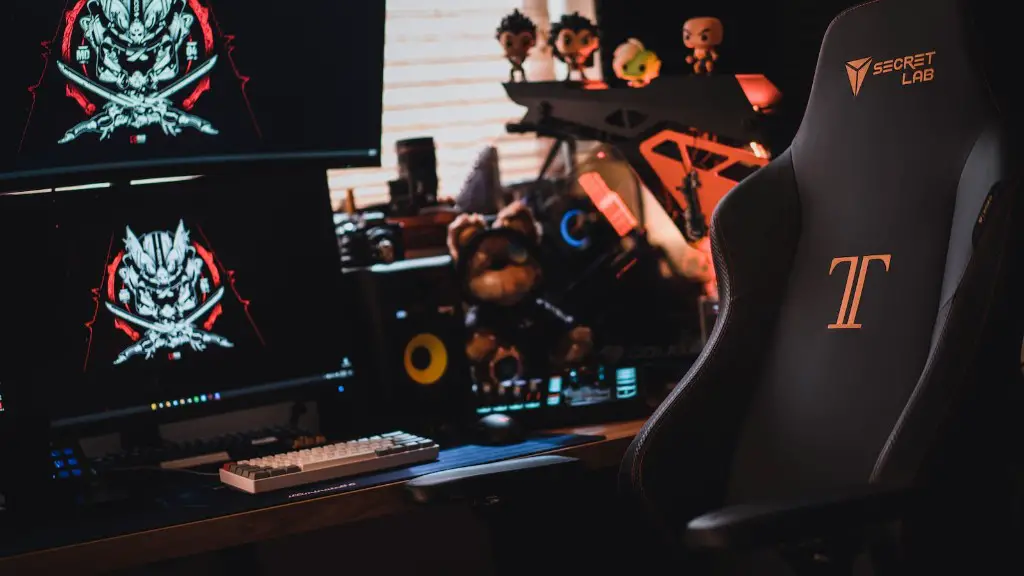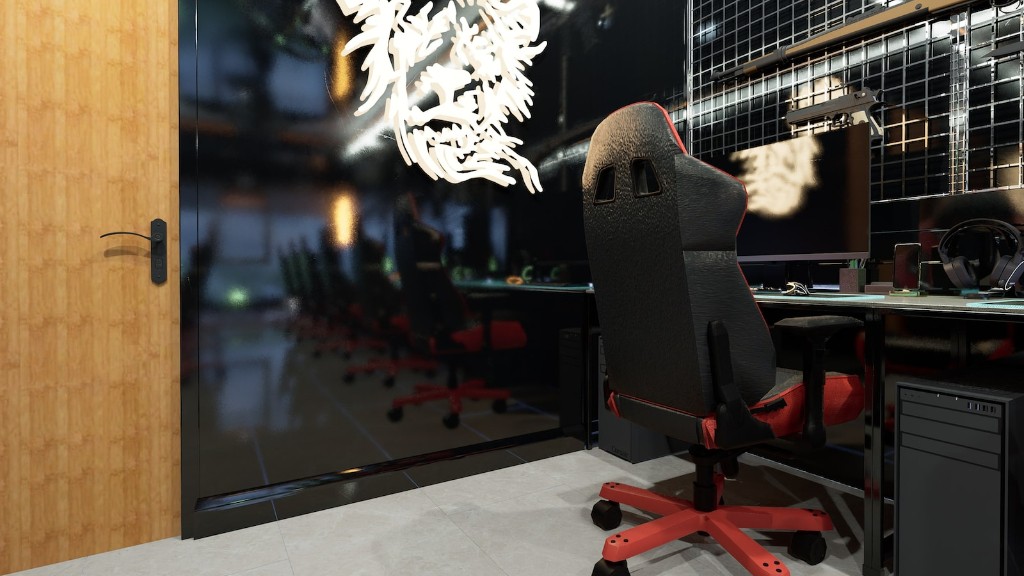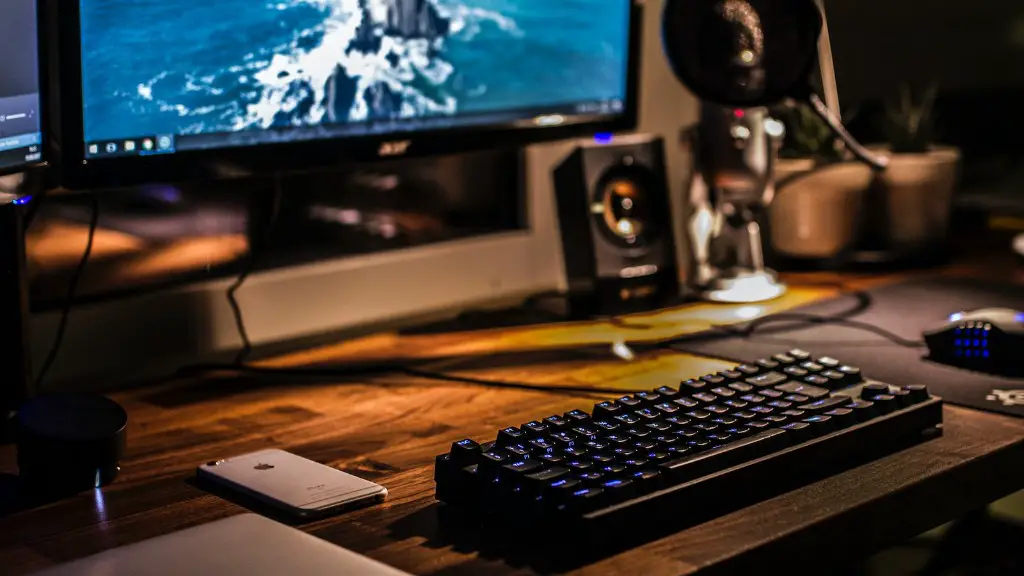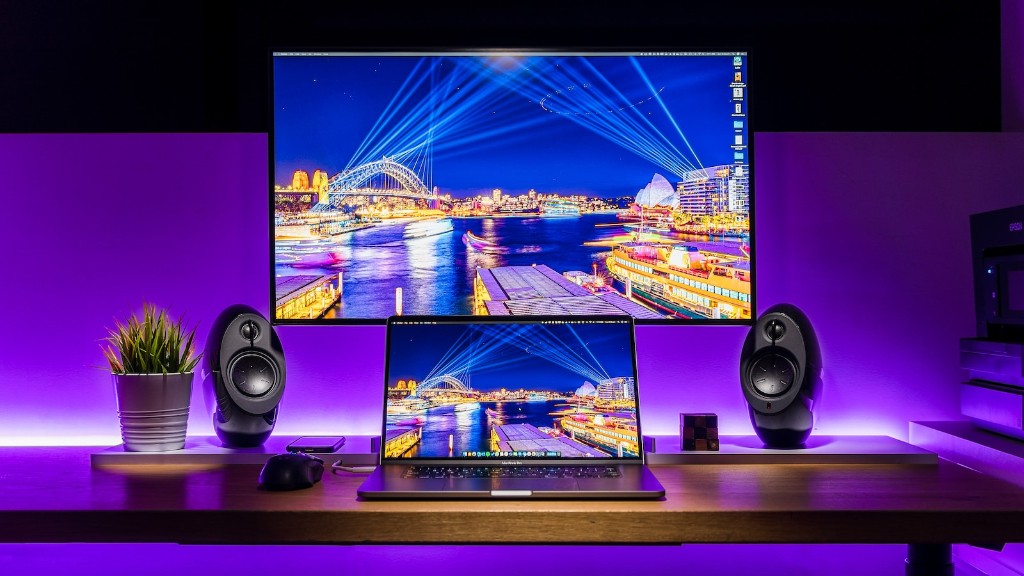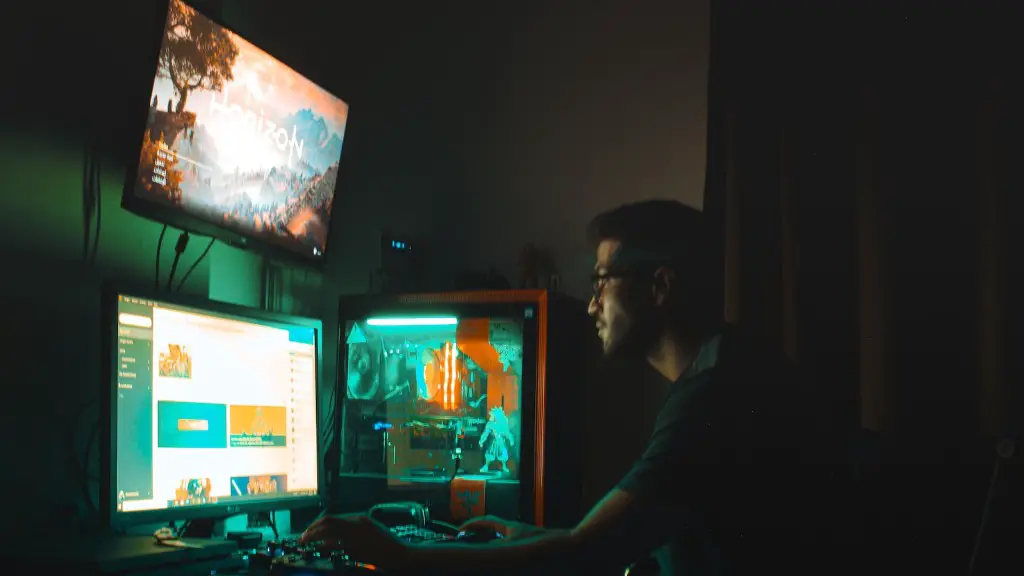If you’re looking to take your PC gaming experience to the next level, you’ve come to the right place. With a few tweaks, you can turn your regular PC into a gaming PC, allowing you to get the best performance from the games you love. Here’re the steps to transform your PC into a gaming beast.
Firstly, ensure your computer has at least 8GB of RAM. This will help limit any potential bugs and ensure your machine has the minimum power to handle bigger games. The more RAM, the better, as this will give you greater frame rates, better visuals and more flexibility.
Next, upgrade your CPU. To play the latest triple-A titles, you’ll want to look at Intel’s 9th generation (or higher) core processor family. Picking the right processor for your gaming demands will be the difference between enjoying smooth performance or struggling with poor frame rates and poor visuals.
Thirdly, consider the graphics card. Even with the best processor, an integrated graphics card won’t cut it for gaming. Look for a dedicated graphics card for the best performance and smooth visuals. A good 1080p gaming card should be sufficient for most people, though higher-end 4K models offer the best gaming experience if your budget allows it.
Fourthly, upgrade your storage. For the best gaming experience, you’ll want to look at Solid State Drives (SSDs) over Hard Disk Drives (HDDs). These will provide faster loading speeds and help you keep your games running smoothly.
Fifthly, invest in a good monitor. A gaming PC demands a good monitor. Many gamers opt for curved monitors with a refresh rate of at least 144 Hz, or you could even look at ultra-wide monitors.
Finally, you’ll want to invest in peripherals like a keyboard and mouse. Most modern keyboards come with an anti-ghosting feature, which is essential for catch-all input errors. Getting a good mouse can also make a big difference in accuracy.
Hardware Considerations
Making your PC into a gaming device includes making hardware modifications that many gamers find daunting. Nevertheless, it isn’t difficult to understand the component parts when building a PC from scratch. If it feels too intimidating, you can contact the manufacturer of your machine and ask them to build you a gaming PC with the latest components.
Although the most important component of any gaming PC is the graphics card, CPUs also provide an important contribution. Intel’s 10th or 11th Gen Core processors possess high instructions-per-cycle (IPC) performance, promising faster game loading. Most gaming PCs then come with pre-installed or additional RAM, allowing for intensified multitasking.
When selecting peripherals, the type of games you like should be the primary influence. If you’re into competitive gaming, then a mouse with a moderate to high CPI should be considered. Many gaming keyboards come with anti-ghosting technology, a feature that increases response time and keeps your input errors to a minimum.
Cooling Solutions for Your PC
Any avid gamer knows that keeping their PC adequately cooled is important for a satisfactory gaming experience. High-end gaming computers virtually always require liquid cooling solutions. The latest all-in-one coolers come with pre-installed fans and radiator, offering an easy to install cooling solution.
Alternatively, there are many customizable cooling solutions available. Many gamers prefer to use a third-party cooler to adjust their fan curves. This helps to reduce the noise from the fans and allows the components to stay cooler for longer periods. If you choose to install your own liquid cooling solutions, you’ll need to purchase heat sinks, tubing, water blocks, and fans.
Those gamers with a limited budget may want to stick to air cooling solutions. Although not as efficient as liquid solutions, modern air coolers are composed of better materials, offering increased heat dissipation. Before selecting an air cooler, make sure that it’s compatible with your motherboard’s socket size.
Power Supplies and Cases
Power Supplies are crucial to any gaming PC. Generally, the higher the wattage, the better the overall performance. A good gaming PC usually requires at least 500W of power, however the exact wattage you need will depend on the other components in your system. Look for a PSU with at least 80+ Bronze certification, allowing you to conserve energy while gaming.
Finally, select the right case to fit your gaming build. You’ll want something that is large enough to fit all of your components and has plenty of ventilation for cooling. Look for a case with support for extra fans and bottom-mounted PSU, both of which will help keep your system cool.
Upgrades, Repairs and Maintenance
Once your PC is setup, you’ll want to keep on top of any needed repairs or general maintenance. If you’re not planning an upgrade to your gaming PC, then some light maintenance is in order. This includes regular cleaning, dusting and re-seating all the components. However, if you’re planning bigger upgrades, you’ll want to consider individual upgrades such as the latest graphics cards or additional RAM.
When upgrading any part of your gaming PC, make sure it is compatible with all your other components. For example, if you are installing a new graphics card, you may need a PSU with a higher wattage. Do your research on all upgrades that you’re planning, so that they are all compatible with your machine.
Lastly, if you’re looking to build a gaming PC, it’s better to order all the parts online rather than gathering individual parts from different vendors. Ordering all your components together ensure you’re receiving the best price, as many companies offer discounts for bulk orders.
Getting the Most from Your PC
When making the switch to a dedicated gaming setup, make sure to optimize settings in order to get the most out of your PC. There are several ways to do this, from installing anti-virus software to prevent hacking, to using your settings for maximum performance. You can also install game boosters and patches for the latest games to ensure you’re getting the best experience.
Even the best gaming PCs can suffer from lag, choppy frames and bugs. Luckily, there are many tweaking tools available online to help alleviate any issues with your current settings. Some of these tweaks require a bit of technical knowledge so make sure to read any available documentation before applying changes.
Graphics cards are essential for running the latest games and ensuring maximum frames per second (FPS). Optimizing your graphics card will give you the best possible gaming performance. This can be done by disabling any unused settings and overclocking the graphics card at safe temperatures.
If you don’t have the technical knowledge to make these changes, you can use a tweaking tool. Popular options include MSI Afterburner and the AMD Wattman tool, which will allow you to change settings and monitor temperatures.
Conclusion
Although many gamers shy away from building their own gaming PC, it’s easier than it seems. The most important components are a good CPU and graphics card, but also don’t forget to account for RAM, cooling solutions, power supplies and a new case. Once you’ve got the hardware setup, you’ll need to optimize it for the best performance. Finally, never forget the importance of maintenance and upgrading components when necessary.
